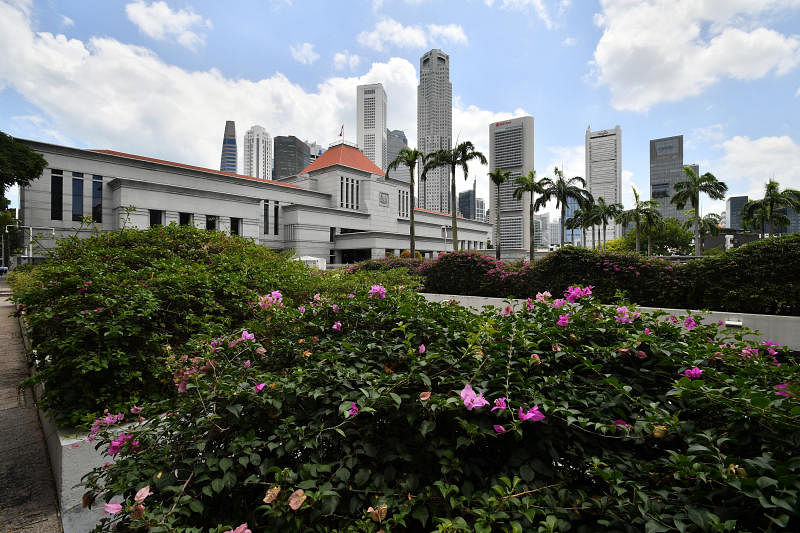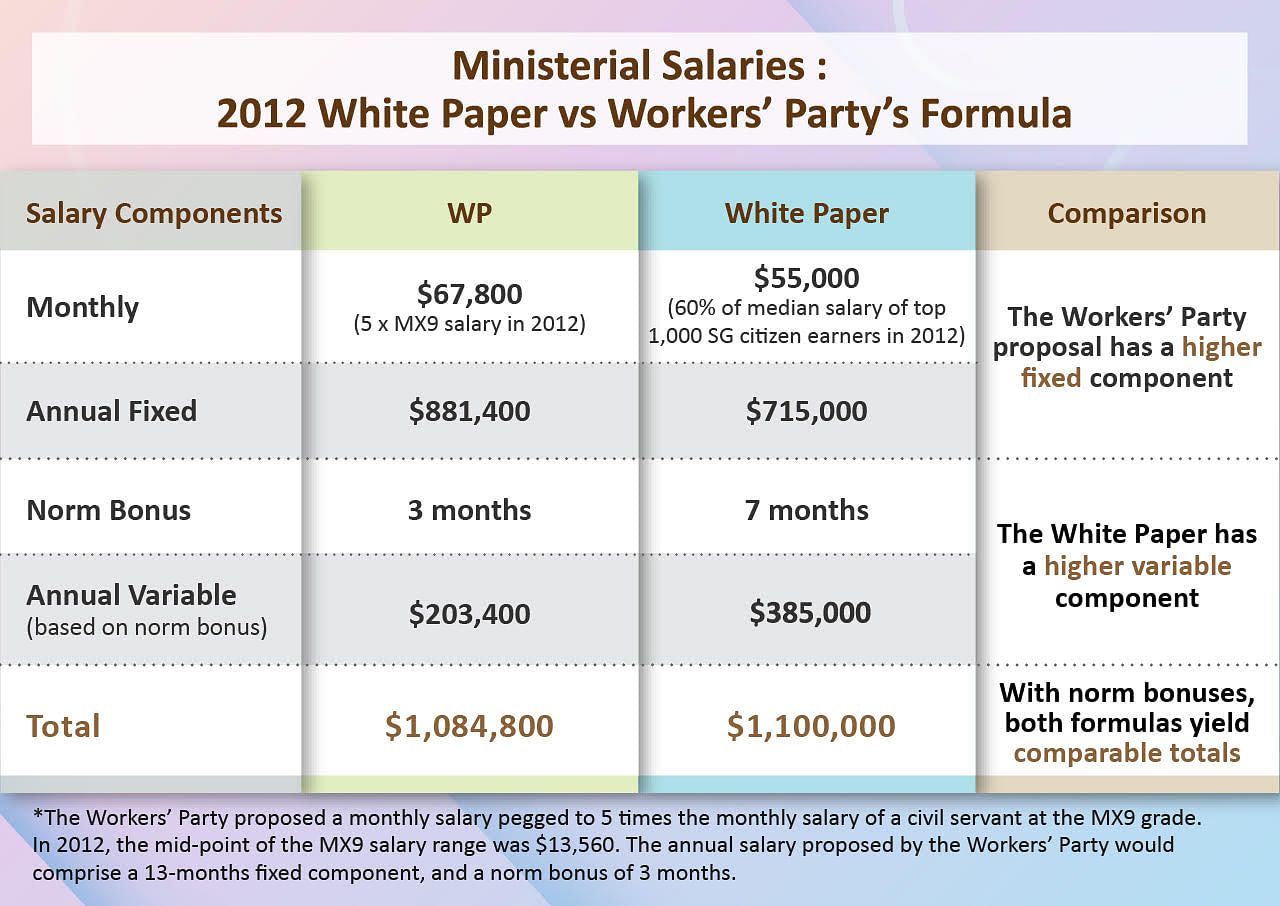Parliament: Salary formula proposed by WP in 2012 would have given ministers the same pay, says DPM Teo
Sign up now: Get ST's newsletters delivered to your inbox

Deputy Prime Minister Teo Chee Hean said the formula proposed by the Workers' Party would have had a higher fixed component of 81 per cent, compared with the White Paper's proposal, and a smaller variable component of 19 per cent.
PHOTO: ST FILE
Yasmine Yahya
Follow topic:
SINGAPORE - In the 2012 debate on ministerial pay, the Workers' Party had proposed a formula which would have paid an entry-level minister a similar annual salary as that recommended by an independent committee, said Deputy Prime Minister Teo Chee Hean.
"The proposals... are really very close to each other in principle and in quantum," he said on Monday (Oct 1), during an exchange with WP chief Pritam Singh and Non-Constituency MP Leon Perera over ministerial salaries.
Mr Teo added: "Indeed... if there were a Workers' Party government in power today, by their own formula, the Workers' Party minister would be paid essentially the same as what a minister today is paid. Mr Pritam Singh would pay himself that same amount."
Responding earlier to Mr Alex Yam (Marsiling-Yew Tee GRC), Mr Teo had noted that in 2012, "there was convergence in this House on both the principles as well as the quantum for ministers' salaries".
That is, the formula proposed by the WP would have resulted in essentially the same total annual salary level for an entry-level minister as that recommended by the independent committee that had been tasked to look into the issue, and which issued a White Paper on it.
But the WP formula would have had a higher fixed component of 81 per cent, compared with the White Paper's proposal, and a smaller variable component of 19 per cent.

"This means the WP would have paid out a higher portion of the salary - about $880,000 out of $1.1 million, regardless of individual performance or national outcomes, and even if the outcomes were not achieved," Mr Teo said.
"This would have made the link between salary and performance weaker, though both the WP's and the White Paper's proposals would have added up to the same norm annual salary."

When pressed by Mr Perera for more information on ministers' bonuses, Mr Teo responded that "there was nothing secret" about it, and that all ministers receive the same national bonus and annual variable component.
He then added: "But could I ask Mr Perera whether he agrees that ministers' salaries should be competitive, that the salaries should recognise the ethos of public service and that salaries should be transparent, which is the WP's position in 2012?"
Mr Teo noted that in 2012, when Parliament debated how ministerial salaries should be calculated, the WP had endorsed the three key principles on which the salary framework is based:
First, salaries must be competitive so that people of the right calibre are not deterred from stepping forward to lead the country.
Second, the ethos of political service entails making sacrifices and hence there should be a discount (of 40 per cent) in the pay formula.
And third, there should be a "clean wage" with no hidden perks.
Mr Perera replied that he was not in Parliament during the 2012 debate, but Mr Teo shot back: "Mr Perera should not evade the question. I've provided him all the info there, it is there, does he agree or not?"
To that, Mr Perera responded that there were "no grounds" for him to disagree with what Mr Teo had said about the debate in 2012.
Mr Singh then jumped into the fray, saying: "Sir, the answer is yes, we agree."
He noted, however, that the WP had proposed a different benchmark for entry-level minister salaries, based on "what sort of message do you send to the public with regard to the total salary that ultimately is derived".

